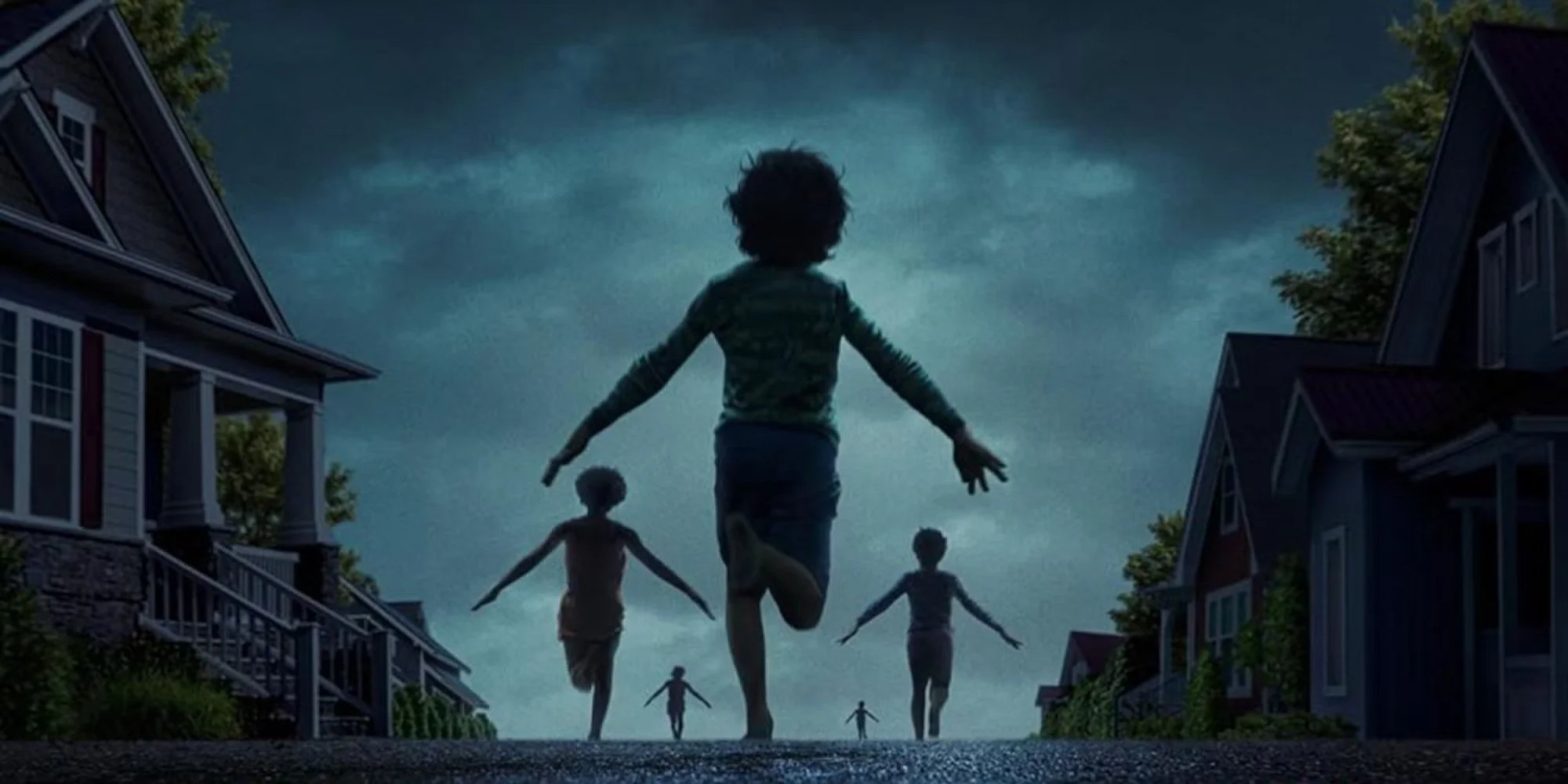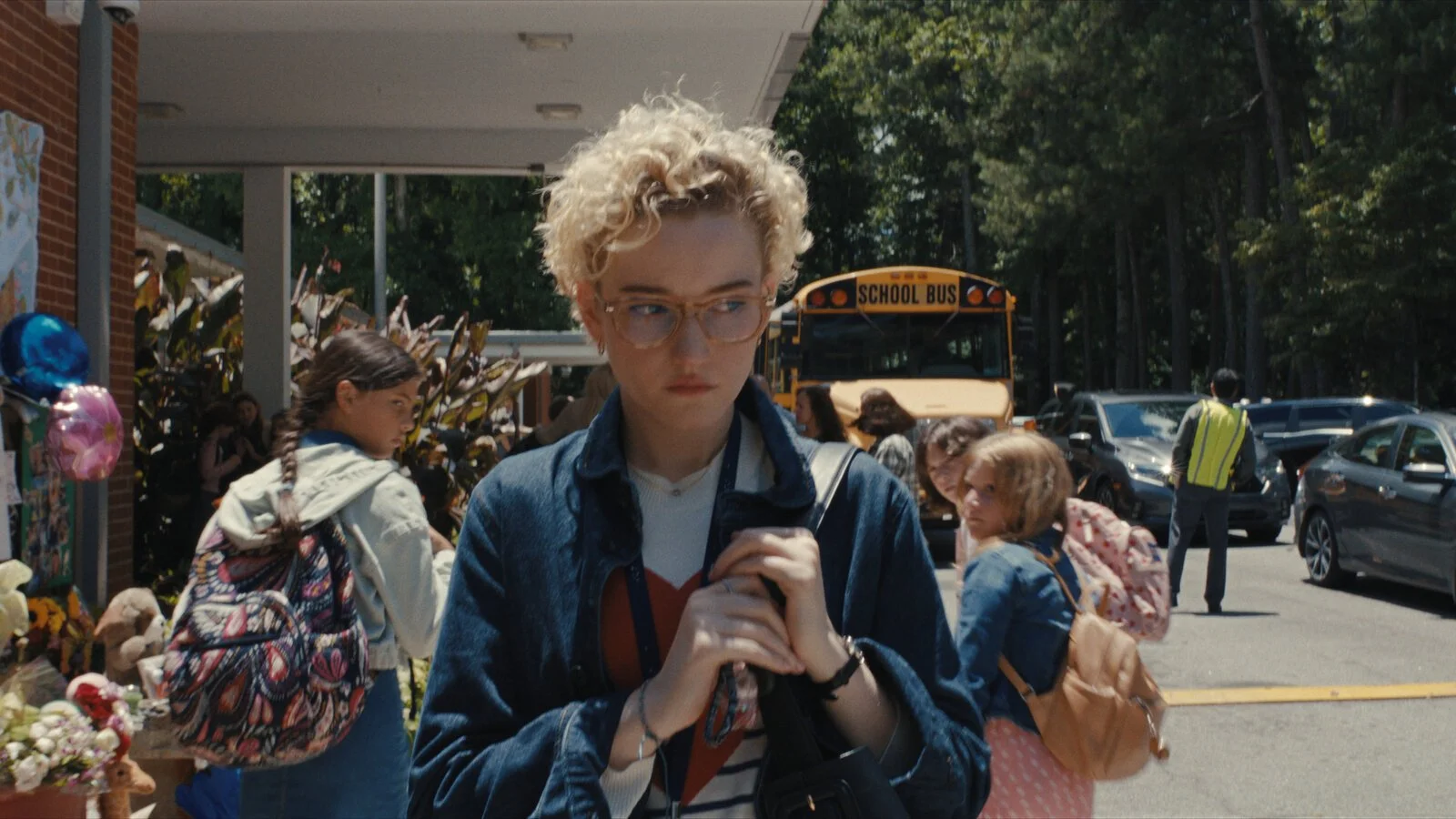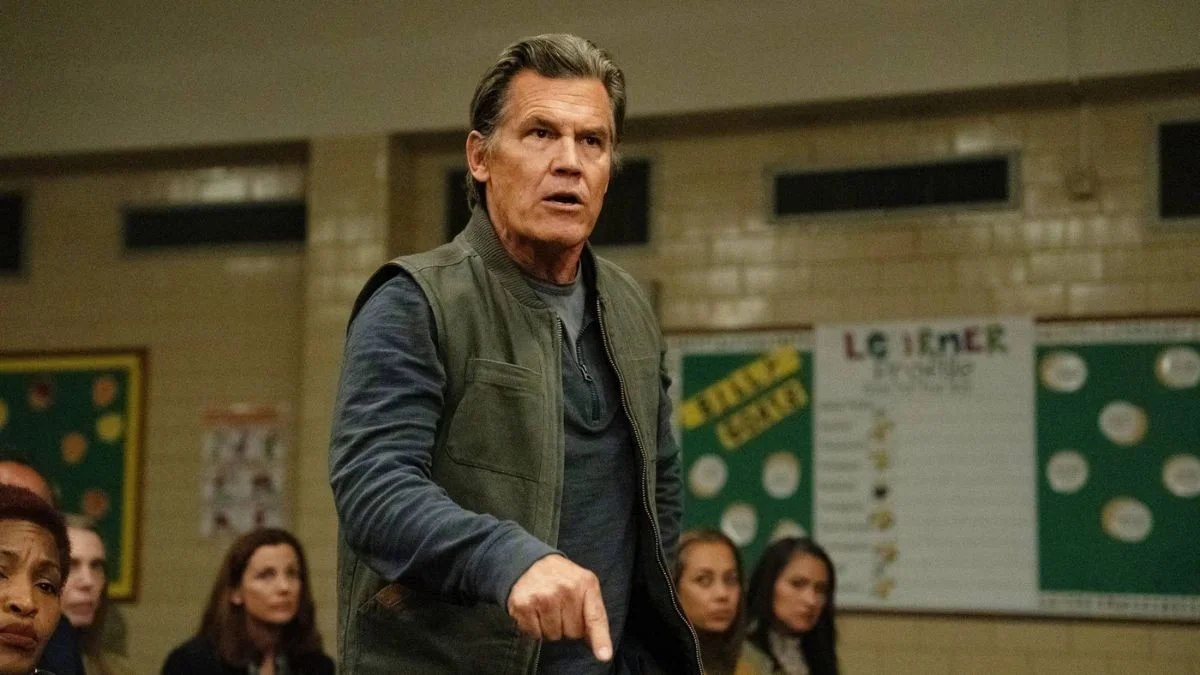Weapons Review: Innovation in Horror Genre Continues with Ambitious, Flawed Structure
Weapons is marketed as a horror movie, though it’s admittedly difficult to definitively label the film as such. The film’s tremendous focus on characters and presenting conflict from different perspectives posits the film like a drama or thriller. However you label it, Weapons is a refreshingly unique tale that’ll keep audiences guessing. // Image: Warner Bros. Pictures
I’ve made it a point to stress during my reviews of films like The Substance and Heretic that I’ve never considered myself a fan of the horror genre. Yet, I find the new wave of filmmakers innovating in the genre to be deeply admirable. More so than most other genres of film, horror flicks have been massively boosted by the rise of indie distributors like A24 and NEON. Now more than ever, we see filmmakers tackle the genre in new, creative ways that feel unlike anything that has been on the big screen before. In 2024, the aforementioned The Substance and Heretic were both incredible examples of using horror and horror elements to tell stories of familiar subjects in new and interesting ways. Tons of movies discuss the topics of self-loathing, lost fame, and how society views older women compared to younger women - but none communicate and express such ideas quite the way that The Substance did, and the film was substantially better because of its use of horror elements. Heretic was much the same way with respect to investigating religion.
In 2025, we’ve seen this expansion of innovative horror find new ways to tell familiar stories in a new context creep its way into larger film distributors giving way to larger-budget innovative horror flicks. Earlier this year, we saw Sinners take the world by storm with a word-of-mouth buzz that catapulted the 137-minute vampire horror film to gross over $365 million at the box office. The impact of an original horror movie not tied to any previously established IP making such a big splash is a massive. The fact that it was distributed by Warner Bros. Pictures, no less - one of the largest film distributors in the industry - this impact will send transformative shockwaves for the future of horror films - an impact we won’t directly see for a while yet. With additional successful releases from Warner Bros. Pictures this year, including Final Destination: Bloodlines and Companion, there’s a clear sign that audiences are supporting horror movies to an extent that will likely lead to even more larger budget, more ambitious, and more weird horror movies. As a fan of stories unafraid to get creative and strange, I see this as nothing but a good thing.
What cements such a feeling is the immediate success of yet another Warner Bros. Pictures horror release - this one being Weapons, Zach Cregger’s follow-up to 2022’s brilliant Barbarian. Weapons is a worthy successor to Barbarian in that it’s a film that likes to play around with genre, perspective, and how it blends humor and fear to create a viewing experience unlike anything else you’ll see in a theater. Weapons opened with a $40 million domestic return, with an overall $70 million box office return after its first weekend - an incredibly impressive feat that communicates to the industry that innovating in horror is financially lucrative. And if anything is financially lucrative in this industry, you can rest assured that we’re going to see a hell of a lot more of it in the future.
It helps that Weapons is an intoxicatingly entertaining movie. Barbarian was a film that genuinely wowed me and served as one of the first movies that really made me willing to pay attention to the unique stories being told in the horror genre. Barbarian invites viewers into a story that has the trappings of a typical horror setup, but through clever use of changing character perspectives and featuring a screenplay filled with genuinely great humor, Barbarian subverted expectations and made for a moviegoing experience that I still remember fondly nearly three years after the fact. Weapons made for a similarly entertaining watch with regard to seeing a typical horror framing be investigated through the use of multiple perspectives and having elements of thrillers, mysteries, and character dramas overtake a lot of the typical horror tropes one would expect for a film of this type. This mixing of genres and perspectives works well here just as it did in Barbarian, though perhaps not to the same extent.
Weapons tells a story that is as deeply interesting and easy to get lost in just as much as it is eerie, unsettling, and filled with absurdist humor. The film unfortunately stumbles with its plot elements in its third act and features some narrative bloat with its multiple perspectives at times, but I’d be lying if I said I wasn’t extremely invested in this movie throughout its 128-minute runtime. Weapons is weird, it’s uncomfortable, and it combines eerieness and humor in a way that will force itself in the memory of all those that see it. Let’s talk about what makes Weapons as interesting as it is.
Of all the characters explored throughout Weapons, the perspective of Justine (played by Julia Garner) is easily the most gripping. The film is at its best when it’s exploring the prejudice she faces after being accused of being responsible for the disappearance of her students. // Image: Warner Bros. Pictures
The film opens with a narration from a little girl - one who we never learn the identity of. To start off with a quick criticism, this feels like an unnecessary addition to the film. The opening and denouement of Weapons features expository dialogue from the narrator that explicitly informs the audience that the events of the story were covered up by law enforcement after the fact. Especially during the film’s conclusion, this narration adds details that don’t add anything substantial to the narrative - if anything, it undercuts the impact of what we do get to see in front of us. Moreover, the use of narration gives the film’s conclusion a rushed feel to it. Likewise, it also gives the film’s opening a slower pace than the rest of the film, since it exposits the inciting incident of the film before we properly begin following characters and how they navigate the conflict that unfolds from this inciting incident.
Once the film shifts to the perspective of Justine, the elementary school teacher whose students disappear in the middle of the night, the film’s structure reveals itself and the narrative pacing finally gets its feet on the ground. Justine is a remarkably flawed character - she resorts to alcoholism to cope with the pressure she gets under after being on the receiving end of accusations of her involvement with her students’ disappearances. She has what appears to be an unhealthy relationship with her ex-boyfriend, doesn’t follow advice given to her (and somehow owns a house by herself on a teacher’s salary in modern day), but there’s an emotional core to her character brought to life by Julia Garner’s performance that communicates that she deeply cares for her students. There’s a pain underneath Justine’s character flaws that make her a strong protagonist for this story.
Just as viewers get attached to her as a character, though, the film’s hook reveals itself in that it switches what perspective we follow throughout the film. Suddenly, characters that once seemed like background characters with a few throwaway lines become the narrative focus. From a parent accusing Justine of being involved in the disappearances to a homeless man asking for money outside a liquor store, the framing of the story on display here gets moved around quickly and consistently throughout the film’s runtime. Thanks to consistently sharp writing and focused direction, the use of multiple perspectives never feels jarring. If anything, it highlights the oddities brought forward by the main conflict. We directly see how the bizarre and unsettling inciting incident affects different peoples’ lives, making the conflict feel larger and more dynamic than if we exclusively focused on a single character’s navigation of the film’s narrative.
Each of the characters we follow are believably flawed in different ways, though some characters get more screen time and attention than what’s needed for the purposes of the main story being told. For example, there’s a subplot regarding Justine and Paul’s relationship, resulting in an explosive encounter with Justine and Paul’s current girlfriend. While this helps illustrate the flaws of both Justine and Paul and their unhealthy relationship, this conflict with the girlfriend ultimately doesn’t go anywhere and feels like narrative bloat that distracts from more pressing aspects of the plot. This is an issue that Weapons doesn’t feature too much of, but the otherwise tight direction of the film makes issues like this stick out all the more. There’s just enough narrative bloat here to make the film feel unfocused at times.
Another note on the film’s structure is that, while most of the characters are flawed and compelling in their own way, the section of the film that focuses on James is clearly the weakest section of the film. While this undoubtedly the funniest part of the film thanks James’ buffoonery that’s consistently on display, it arrives at a point in the film where the audience starts to really be in need of answers for what’s going on with the disappearances - the main conflict of the film. While James’ section begins to unravel the central mystery of the film, the section is paced in a way that makes it feel like the audience needs to arbitrarily wait a bit longer to start getting the answers they want. It isn’t a major issue, as answers start to arrive when we begin seeing Marcus and Alex’s perspectives, but it’s enough of an imperfection in the pacing of the film to be noticable.
Archer, performed by Josh Brolin, is a remarkably strong case study for perspective in storytelling. We initially see him as a disgruntled parent with a few lines of dialogue, but his role in uncovering the mystery of the disappearances highlights just how much characters can reveal themselves to be more than they initially seem. // Image: Warner Bros. Pictures
The main star of the show in Weapons, and perhaps the very reason why I find the film to be so interesting to talk about, is the mystery surrounding the film. This film’s marketing would lead you to believe that this movie will lead to conventional scares to make you classify if as a horror film at a glance. Not unlike Barbarian before it, though, Weapons feels far more interested in expressing a mystery-fueled narrative filled with flawed, complex characters and the slow burn of dread instead of offering brief instances of distress. Because of that, it’s hard to feel confident in classifying Weapons as a horror movie - I’d feel more comfortable labeling this as a mystery-drenched thriller with some horror elements within it. No matter how you classify it, there are few movies that deliver an experience quite like Weapons. The film’s unique structure, masterful implementation of uneasy anticipation throughout its setting, and collection of mostly entertaining characters makes for a delightful film that will make you uncomfortable in the best way possible.
That said, Weapons unfortunately crumbles a bit during its final act, which introduces cracks in the film’s plot that makes for underwhelming answers to the various questions that the film exquisitely posits. To elaborate more, I’ll need to briefly discuss spoilers.
The following section contains story spoilers. Please continue to the next section to avoid spoilers.
The biggest disappointment inherent in Weapons’ narrative is its rationale for the disappearance of the seventeen children that go missing in the same elementary school class. As previously discussed, the film holds onto this reveal for perhaps a bit longer than it needs to. We eventually learn that Gladys, aunt of Alex Lilly, the sole remaining student from the original class, is responsible for the disappearance of the children. When we get properly introduced to Gladys later in the film, she is on the verge of death from an illness. To prevent her succumbing to this illness, Gladys uses a form of witchcraft to command others and effectively weaponize people.
The critical moment of the plot that brings us into the film’s third act is the discovery that the seventeen children are standing in Alex’s family’s basement. Gladys specifically requests Alex to bring a personal belonging from each of his classmates in order to make her better - something that even Alex questions. If this is the case, that only brings confusion as to why the children are kept alive in the basement. If there’s a reason as to why Gladys chooses to keep the children alive, it’s not made clear. Moreover, if the children can play a role in helping her feel better, the audience doesn’t get to understand what makes that the case. Does consuming children make her better? Does simply having children under her control make her better? This is information that is never truly communicated to the audience, and because of that, the answer to the film’s primary mystery is a messy, underwhelming one.
Weapons would have benefited greatly from additional exposition describing exactly how Gladys benefits from effectively enslaving these children and additional people around her. Better yet, if the film showed Gladys directly benefiting from her control of the various people in this town, I think the overall reveal of information would feel more narratively satisfying. As is, the antagonist’s motivation for this story feels incomplete, and the punch of the film’s final act is lessened as a result.
This concludes the spoiler section.
Weapons has imperfections with its narrative, but it’s a film I can’t help but respect and admire for its sheer creativity and unsettling nature. Despite having what I would consider to be plot holes that make for an underwhelming third act, I can’t deny that the mystification of the disappearances make for an unpredictable and exciting adventure throughout the first two acts.
Weapons is a refreshing reminder that there are still new ways to tell familiar stories and unfamiliar ways. While this is far from the first horror-adjacent film to tackle a mysterious conflict about grade-school children disappearing, the smart use of perspectives and the judicious blend of thrills, mystery, and dark humor makes for an unforgettable viewing experience. Weapons innovates exactly where it needs to: in its storytelling structure and style. The film clearly shines when it’s highlighting how much a perspective contorts the perception of this story that connectively haunts the setting’s community.
I can’t say that any film has made me feel quite the way that Weapons did, and I think there’s value in that newness. There’s value in recognizing that the creative ambition of a story can be enough to make it worth being told. While aspects of the film’s narrative come up underwhelming, I can’t help but feel my excitement and optimism build for the future of this genre after seeing Weapons. Should visionary directors Zach Cregger continue to get the opportunity to tell creative and weird stories unlike anything we’ve seen before as was the case with Weapons, then I think the genre’s future is going to be exceptionally bright. I just hope the plot imperfections will get ironed out when we get there.
Final Grade: B-
Thank you very much for reading! What are your thoughts on Weapons? How do you feel about the current state of the horror genre? Do you think the genre is being innovated upon right now? As always, join the conversation and let me know what you think in the comments or on Bluesky @DerekExMachina.com.








